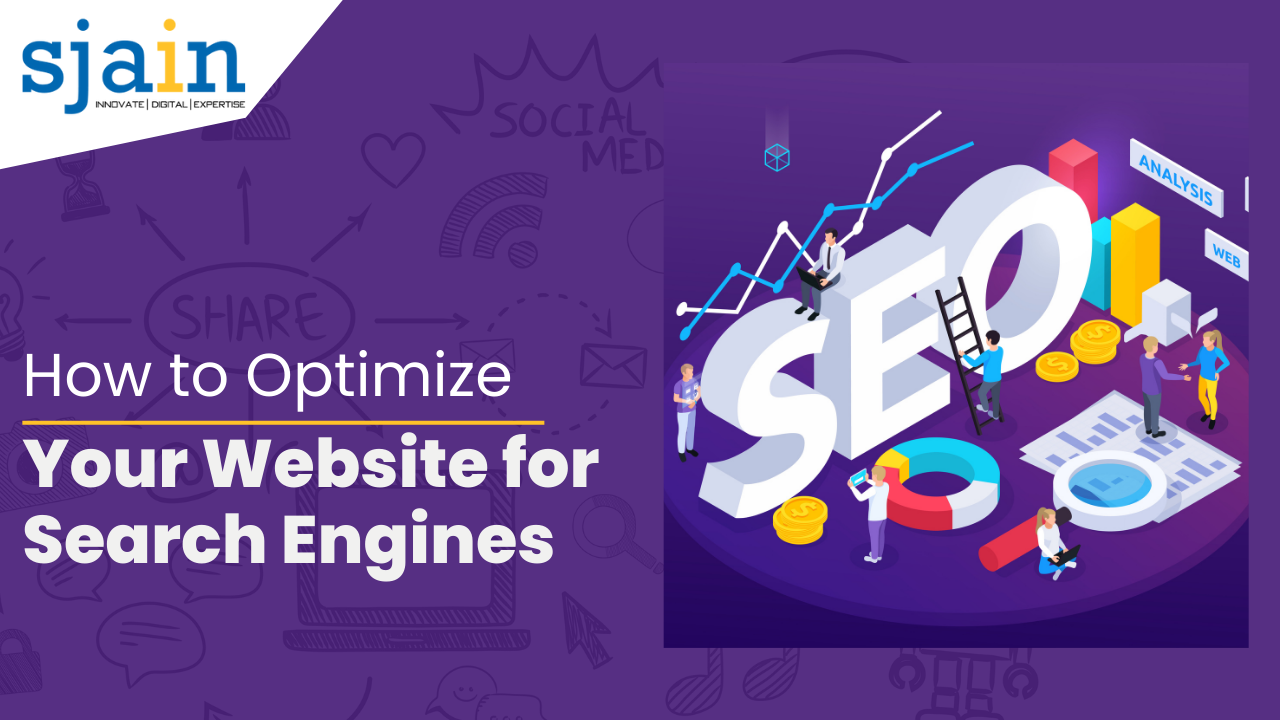How to Optimize Your Website for Search Engines
In today’s digital world, having a website is not enough. Your website needs to be optimized for search engines to increase visibility and drive traffic. Search engine optimization is the process of optimizing your website’s content and structure to rank higher in search engine results pages (SERPs). In this article, we’ll discuss how to optimize your website for search engines with some essential tips and tricks.
As more businesses move online, it becomes increasingly important to stand out in the sea of websites. Whether you are starting a new website or revamping an existing one, optimizing for search engines is critical for success. You may boost your website’s search engine rating and get more visitors by following these guidelines.
The first step in optimizing your website for search engines is to research and identify relevant keywords. Keywords are phrases and words that people type into search engines to find what they are looking for. By using relevant keywords in your website content, you can improve your website’s visibility and rank higher in search engine results.
How Do You Optimize Your Website For Search Engines
Research and Identify Relevant Keywords
The first step in optimizing your website for search engines is to research and identify relevant keywords. Keyword research helps you understand what people are searching for and what terms they use to find information on your products or services. By targeting the right keywords, you can attract the right visitors to your website and increase your chances of converting them into customers.
To begin your keyword research, start by brainstorming a list of words and phrases that are relevant to your business. Use tools like Google Keyword Planner or SEMrush to identify high-volume, low-competition keywords. These tools can help you understand the search volume, competition level, and estimated cost-per-click for each keyword.
Optimize Your Website Content
- Once you’ve identified your keywords, it’s time to optimize your website content. Here are some tips to keep in mind:
- Use your target keywords throughout your website content, including your titles, headings, and body text.
- Ensure your website content is high-quality, engaging, and relevant to your target audience.
- Use meta descriptions and title tags to provide a brief summary of your web page’s content and to include your target keywords.
- Use internal linking to connect related pages and help search engines understand the structure of your website.
Improve Website Structure and Navigation
- Your website’s structure and navigation play a crucial role in your SEO strategy. Here are some tips to improve your website’s structure and navigation:
- Ensure your website has a clear hierarchy and organized structure.
- Use descriptive and keyword-rich URLs that clearly indicate the content of your web page.
- Use header tags (H1, H2, H3) to structure your web page’s content.
- Make sure your website is mobile-friendly and has a fast loading time.
Build High-Quality Backlinks
Backlinks are links from other websites that direct users to your website. Backlinks are important for SEO because they signal to search engines that your website is relevant and valuable. Here are some tips for building high-quality backlinks:
- Create high-quality content that other websites want to link to.
- Reach out to other websites in your industry and request a link to your website.
- Use social media platforms to promote your content and attract links.
- Participate in forums and online communities to establish yourself as an expert in your field.
Conclusion
Optimizing your website for search engines is an ongoing process that requires patience and persistence. By following these tips and best practices, you can improve your website’s search engine ranking and attract more visitors. Remember to focus on high-quality content, relevant keywords, and a clear website structure to maximize your SEO efforts. Regularly review your website’s analytics to track your progress and make necessary adjustments to your SEO strategy. With time and effort, you can drive more traffic to your website, increase conversions, and grow your business

